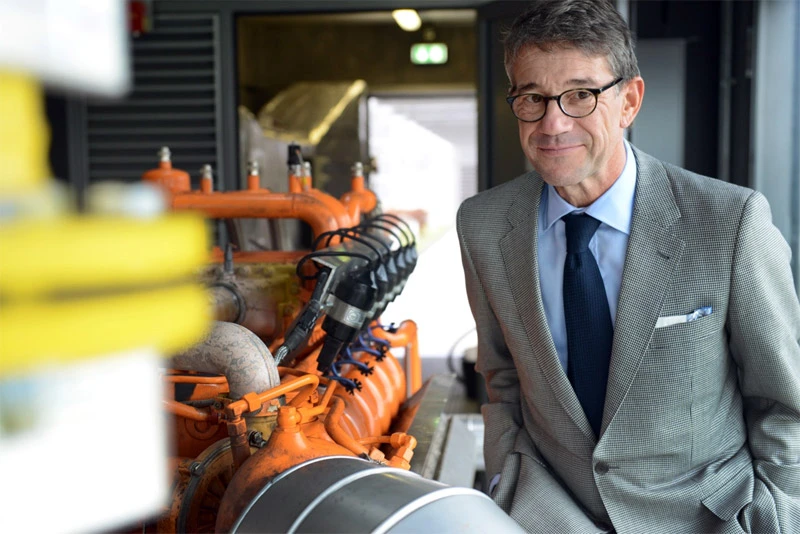Individual connections to cosy wood heat
Plans for an innovative local piped heat system in the project “Wohnen am Campus”
The project “Wohnen am Campus” (“Living on the Campus”) is giving rise to a residential district at the heart of the Science Location Adlershof. True to this location’s philosophy, this is marked by a high level of innovation. In a research project, BTB Blockheizkraftwerks-Träger- und Betreibergesellschaft, the TU Dresden, and the developers of a local piped heat system prove it has what it takes.
When investing in their own four walls, developers are unwilling to compromise. Andreas Reinholz perfectly understands that, even when it doesn’t make his work any easier. The engineer at BTB Blockheizkraftwerks-Träger- und Betreibergesellschaft mbH Berlin has joined forces with a building group for the purpose of planning an innovative local piped heat system in the project “Wohnen am Campus”.
Local piped heat systems are by no means a sure fire success. Operators are faced with a relatively low heating demand and high costs for the small scale pipe network, the connections to buildings, and the control installations. “The response of private developers is one of skepticism when the heating is not installed in their own basement,” explained Reinholz.
That this nevertheless works in Adlershof can be put down to many reasons. On the one hand, legislation demands and subsidises regenerative heating. Developers can choose their own solar thermal installations, CHP plants, wood heaters, etc., or piped heat of which at least 50 percent is generated by combined heat and power (CHP) systems. “Our CHP contribution is 90 percent. In addition, we generate the basic load with wood, supplemented with natural gas and crude oil in times of severe frost,” explained Reinholz. Ecological heat generated from wood and CHP systems would also reduce the costs of thermal insulation.
The developers therefore save double. They need no green heating technology and less insulation. Yet this was not enough for the Adlershof project. “We want to provide each and every developer with his own, personal energy transition,” claimed Reinholz. In addition to piped heat, they may install their own systems and transfer their excess heat over the network to their neighbours. Their meters then run backwards, and BTB reimburses them on top for their troubles.
This requires intricate control technology. The local piped heat network is supplied by the return line from the large BTB network. “Water thatwe have supplied at 110 °C to our district heating network returns at 55 °C,” explained Reinholz. This is 15 °C lower than needed in the local piped heat system. Accordingly, hot water at 110 °C is deliberately sprayed in, which also serves to destroy legionallae. The local piped heat network is decoupled, enabling the developers to supply it with heat.
“The technology is manageable,” said Reinholz, continuing that it was more difficult to get all those interested in the building group to agree and to convert the theory into practicable solutions. This latter is proving a matter of acute interest for the Federal Government as well. It is contributing research funds towards clarifying the technical and social issues associated with the combination of district heating and individual heating installations. The developments for this project by researchers at the TU Dresden include a transfer station that is studded with instruments supplying data for potential optimisations of operations. Off the peg solutions do not work here. It is exactly this point that intrigues the engineer. Although agreements with the building group do sometimes cost time and patience, he derives a great deal of enjoyment from the project.
By Peter Trechow for Adlershof Special
